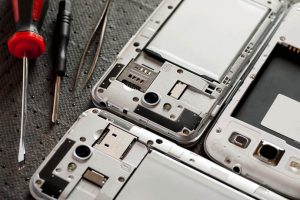 John Lingelbach will be leaving his post at the helm of Sustainable Electronics Recycling International (SERI) and the R2 certification program later this year.
John Lingelbach will be leaving his post at the helm of Sustainable Electronics Recycling International (SERI) and the R2 certification program later this year.

 John Lingelbach will be leaving his post at the helm of Sustainable Electronics Recycling International (SERI) and the R2 certification program later this year.
John Lingelbach will be leaving his post at the helm of Sustainable Electronics Recycling International (SERI) and the R2 certification program later this year.
 European coalitions representing electronics manufacturers have launched an internet-based information service designed to help processors better recycle devices.
European coalitions representing electronics manufacturers have launched an internet-based information service designed to help processors better recycle devices.
Last year, in the pages of E-Scrap News, the Basel Action Network (BAN) called out a growing trend of waste trade denial. Josh Lepawsky, co-author of a study we critiqued for diminishing the significance of e-waste export from developed to developing countries, responded in the December 2015 E-Scrap News magazine with a critique of his own.
This story originally appeared in the September 2016 issue of E-Scrap News.
Subscribe today for access to all print content.

 Two recent surveys explored consumer expectations when it comes to the management of recovered electronics.
Two recent surveys explored consumer expectations when it comes to the management of recovered electronics.

Credit: donvictorio/Shutterstock
An e-scrap processor is refuting allegations by Basel Action Network that the company shipped a broken monitor to Asia.

Credit: lightrain/Shutterstock
Four e-scrap companies have issued statements after being tagged by the Basel Action Network for allegedly exporting scrap printers and LCD monitors.
 Basel Action Network, which has been using GPS trackers to follow used electronics, today named six companies it says were involved in shipping scrap printers and LCD monitors to Asia.
Basel Action Network, which has been using GPS trackers to follow used electronics, today named six companies it says were involved in shipping scrap printers and LCD monitors to Asia.
 Industry advocates will be pushing government leaders at the state and federal level this year to approve legislation and regulations protecting consumer device repair and reuse.
Industry advocates will be pushing government leaders at the state and federal level this year to approve legislation and regulations protecting consumer device repair and reuse.

Tax reform legislation moving through Congress could help electronics recycling companies deduct equipment expenditures.
Tax reform bills approved by the U.S. House and Senate include sweeping cuts to business taxes, and recycling industry associations are applauding the business-friendly measures.
